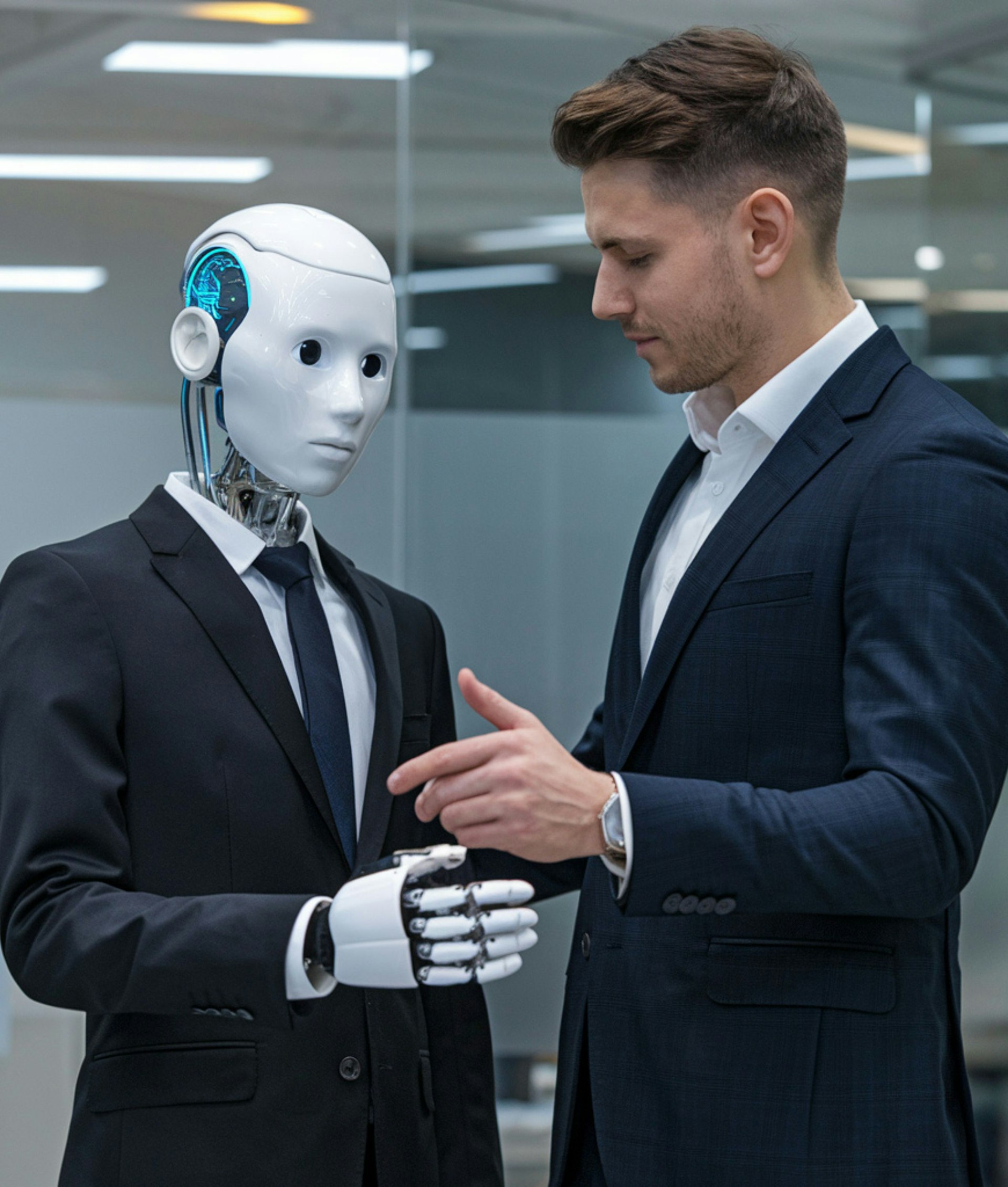OpenAI Models: Driving Global Collaboration and Innovation

Photo by Sweet Life on Unsplash
Introduction
In today’s interconnected world, the ability to collaborate across borders is essential for economic growth, scientific advancement, and cultural exchange. OpenAI models are at the forefront of this transformation, offering powerful tools that enable organizations, governments, and individuals to work together in ways previously unimaginable. This article examines the role of OpenAI models in global collaboration, highlighting real-world partnerships, technical frameworks, and actionable steps to access these capabilities.
The Foundation: OpenAI’s Global Collaboration Initiatives
OpenAI has launched initiatives such as OpenAI for Countries , designed to help nations build localized AI infrastructure while maintaining control over their data and respecting cultural and linguistic differences. This approach enables governments to deploy AI solutions tailored to local needs, ranging from healthcare and education to public service delivery. Rather than imposing a one-size-fits-all model, OpenAI collaborates with countries to develop secure, in-country data centers and customized versions of ChatGPT that serve their citizens in native languages and cultural contexts. These efforts also prioritize democratic values and human rights, ensuring that AI technology supports open societies and responsible innovation [1] .
Key Benefits of OpenAI Models in International Collaboration
OpenAI models bring several unique advantages to global partnerships:
- Localized AI Solutions: By working with local stakeholders, OpenAI helps countries build AI systems that respect data sovereignty and cultural nuances, which is critical for sensitive sectors like healthcare, education, and public administration.
- Enhanced Security and Safety: OpenAI continues to invest in evolving security measures, ensuring that deployed models comply with international privacy standards and provide robust protection for user data [1] .
- Support for Emerging Ecosystems: Through national startup funds and infrastructure investments, OpenAI enables countries to foster new industries, create jobs, and stimulate economic growth around AI innovation.
- Democratic Governance: OpenAI’s collaborative model invites input from a diverse array of stakeholders, supporting democratic oversight and inclusive policy development [1] .
Real-World Partnerships and Case Studies
Several high-profile collaborations illustrate the global impact of OpenAI models:
Government Partnerships
The government of Iceland partnered with OpenAI to use AI for language preservation and public-sector innovation. By leveraging OpenAI’s language models, Iceland has been able to digitize and promote the Icelandic language, ensuring its vitality in the digital age. This partnership also supports more efficient government operations and improved public engagement [3] .
Enterprise Collaborations
Major corporations such as Salesforce and Atlassian have integrated OpenAI models into their platforms to enhance collaboration, customer service, and workflow automation. For example, Salesforce’s EinsteinGPT combines OpenAI’s technology to generate email drafts, summarize threads, and provide instant responses, streamlining communication and boosting productivity. Atlassian integrates OpenAI into Jira and Confluence, improving support ticket resolution and knowledge management by providing automated explanations and context-aware suggestions [2] .
Media and Content Creation
International news organizations such as the Financial Times, Le Monde, and Prisa Media use OpenAI models to improve content creation and audience engagement. These partnerships enhance the quality and reach of content while providing OpenAI with diverse language datasets to improve its models. The result is a virtuous cycle that benefits both global information flow and AI development [3] .
Technical Frameworks for Multi-Agent Collaboration
Beyond bilateral partnerships, OpenAI models enable multi-agent collaboration frameworks that can be applied to complex, international projects. Using the OpenAI Agents SDK, developers can orchestrate teams of specialized AI agents to tackle multifaceted problems such as investment research, scientific discovery, or disaster response. These systems are designed for modularity and transparency, allowing parallel execution and robust oversight. For organizations seeking to build their own agentic workflows, the OpenAI documentation provides detailed blueprints and best practices for implementation [4] .
How to Access and Implement OpenAI-Powered Collaboration
If your organization is interested in deploying OpenAI models for global collaboration, there are several pathways:
- Engage with OpenAI’s Official Programs: Countries, enterprises, and research institutions may contact OpenAI through its official website to inquire about partnership opportunities. You can visit the OpenAI Global Affairs page and use the provided contact channels for detailed discussions [1] .
- Utilize Cloud-Based AI Services: Microsoft Azure’s OpenAI Service offers access to GPT models for businesses and governments. To get started, you can search for “Azure OpenAI Service” and follow the official Microsoft onboarding process. This enables rapid integration of AI into existing workflows and applications [5] .
- Leverage Developer Tools and SDKs: For technical teams, OpenAI provides SDKs and APIs that facilitate the creation of advanced, multi-agent collaboration systems. The OpenAI Cookbook and documentation detail implementation strategies for orchestrating AI agents in complex tasks [4] .
- Explore Media and Content Partnerships: Media organizations may connect with OpenAI to discuss content integration and model training collaborations, as demonstrated by Financial Times and Le Monde. For more information, reach out through official OpenAI channels or search for “OpenAI media partnerships.”
In cases where direct application portals are not available, it is recommended to use the official OpenAI website or the respective cloud provider’s support channels to initiate contact. Government agencies and research institutions may also engage through official diplomatic or technology cooperation offices.
Challenges and Solutions in AI-Powered Global Collaboration
While OpenAI models offer significant promise, there are challenges to successful global collaboration:
- Data Privacy and Sovereignty: Ensuring that data remains within national borders and complies with local regulations is a primary concern. OpenAI addresses this by supporting in-country data center infrastructure and robust compliance frameworks [1] .
- Bias and Cultural Sensitivity: AI models must be trained to recognize and respect cultural differences. OpenAI collaborates with local partners to refine models and minimize bias through diversified datasets and continuous feedback.
- Resource Accessibility: Not all countries have equal access to technological infrastructure. OpenAI’s national startup funds and infrastructure partnerships aim to bridge this gap by investing in local capacity building and education.
- Transparency and Oversight: To foster trust, OpenAI advocates for democratic input and transparent governance of AI systems, encouraging international cooperation on standards and ethical guidelines.
Future Trends and Opportunities
The landscape of global collaboration is rapidly evolving with the advancement of AI. OpenAI models are expected to play an even greater role in:

Photo by Evangeline Shaw on Unsplash
- Cross-border Research: Facilitating international scientific collaborations by providing multilingual, context-aware tools for data analysis and knowledge sharing.
- Global Crisis Response: Enabling rapid coordination and information dissemination during pandemics, natural disasters, or humanitarian emergencies.
- Education and Workforce Development: Supporting the creation of localized, AI-driven educational content and training programs to upskill workers in emerging economies.
Key Takeaways
OpenAI models are redefining what is possible in global collaboration. Through secure, localized infrastructure, strategic partnerships, and robust technical frameworks, they offer new pathways for innovation, economic development, and societal progress. Organizations seeking to leverage these opportunities should engage directly through official OpenAI channels, cloud service providers, or diplomatic partners, always prioritizing transparency, compliance, and inclusivity.
References
- [1] OpenAI (2024). Introducing OpenAI for Countries – Official announcement of global collaboration framework.
- [2] Tech Monitor (2024). Which companies have partnered with OpenAI?
- [3] Originality.ai (2024). OpenAI Partnerships List – Overview of global partnerships and collaborative projects.
- [4] OpenAI Cookbook (2024). Multi-Agent Portfolio Collaboration with OpenAI Agents SDK.
- [5] Dev.to (2024). How OpenAI and Microsoft Are Revolutionizing AI Technology Together.
MORE FROM couponito.com













